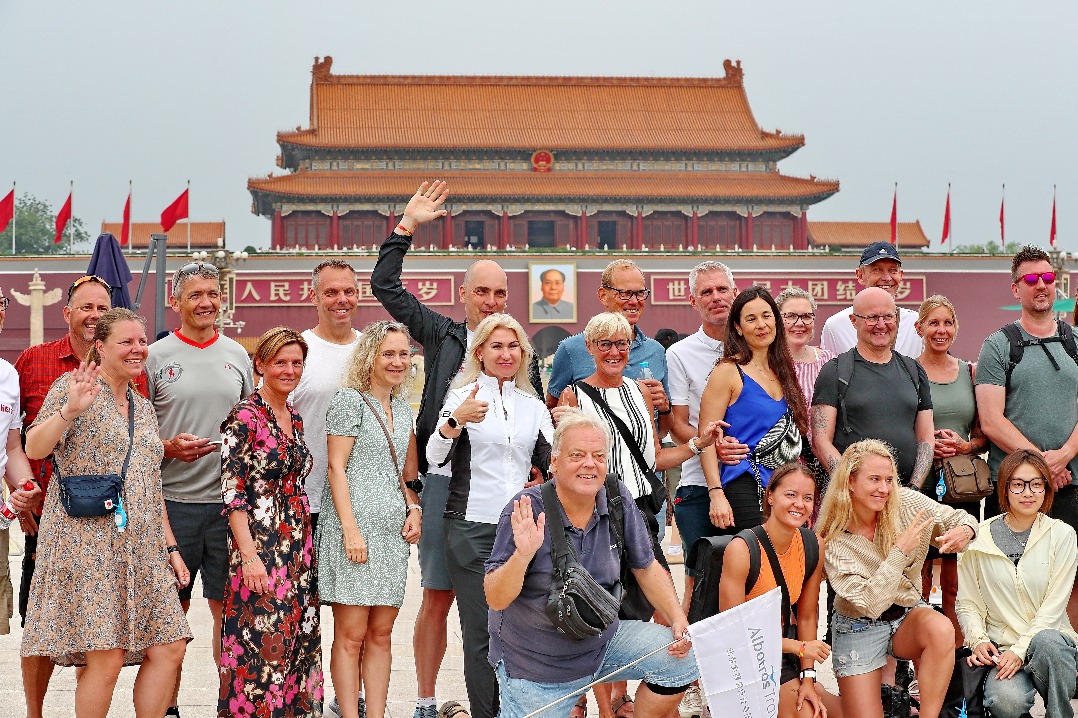Experts discuss Meng's fate as hearing finishes
By RENA LI in Toronto | China Daily Global | Updated: 2021-08-20 11:06
With the extradition hearing of Huawei CFO Meng Wanzhou completed and a decision now up to the judge, Canadian observers offered their views on the potential outcome.

Richard Kurland, a lawyer and editor-in-chief of Lexbase, explained that extradition involves a judicial phase and a political one. He said the law in Canada permits the political minister to shut down an extradition case at any time.
"In Canada, the political and judicial systems are separate. While you cannot go into a criminal case and shut it down, you can do that in extradition," Kurland told China Daily.
The committal hearing on Meng's case finished Wednesday. British Columbia Supreme Court Associate Chief Justice Heather Holmes has reserved her decision until the fall. She will convene a case-management conference on Oct 21, when she will indicate a date on which the decisions will be released on committal as well as on the defense's abuse of process application.
Even if the judge commits Meng for surrender, the final decision on extradition is up to Canada's justice minister.
Meng, 49, the chief financial officer of Huawei Technologies Co Ltd, was arrested by Canadian authorities at the request of the US at the Vancouver International Airport on Dec 1, 2018. She is accused of misrepresenting the Chinese telecom company's relationship with Skycom in a PowerPoint presentation to HSBC in 2013 and putting the bank at risk of violating US sanctions against Iran. Meng and Huawei have repeatedly denied the accusations.
Gary Botting, a Vancouver extradition lawyer, predicted that Holmes would ultimately approve the extradition, opening a path, he said, for the justice minister to "do what he should have done in the first place, which is free Madam Meng", the South China Morning Post reported.
Meng's arrest has had a negative effect on Sino-Canadian relations, and her lawyers have claimed that she has been used as a "bargaining chip" in a trade war between the United States and China.
Victor Gao, vice-president of the Center for China and Globalization, a Chinese think tank, said, "Canada has been thrown under the bus by the US as far as this extradition case is concerned.
"The extradition of Meng, whose strategic value for the US, if any, has long since evaporated, may become a bargaining chip that Washington is eager to use in its overall dealings with China," Gao wrote on China-US Focus.
Jiang Wenran, adviser to the Institute for Peace & Diplomacy told China Daily: "If (Canadian Prime Minister Justin) Trudeau mishandles the Meng case, it may damage relations with the US, China, or both. The current inaction or hesitation by the Canadian government is not a calculated strategic move but a sign of weakness."
At the end of the two-week extradition hearing on Wednesday, Canada's attorney general had a last chance to rebut the defense lawyers' presentation to preclude Meng being sent to the US to face fraud charges.
The judge previously has described the charges against Meng as "unusual" and "unclear".
The defense said it has shown that Huawei was engaged in permissible activity in Iran. But certain Iranian transactions are considered illegal if made in US dollars through a bank branch in the US.
The judge asked the government why HSBC continued clearing the transactions via the US after it closed the Skycom accounts following the meeting with Meng.
Crown prosecutors led by the Justice Department's chief counsel, Robert Frater, argued that actual loss is not required in order to find prejudice under the fraud law. Because Meng did not disclose sufficient information, the theory of fraud can be established even if the victim were somehow at fault, Frater argued.
"It didn't matter whether the victim should have protected itself from deception," Frater told Holmes, adding that the defense doesn't need to prove HSBC would have acted differently but for Meng's representations.
The defense has claimed that the Crown government failed to prove any connection between Meng's PowerPoint presentation and HSBC's subsequent decision to approve the transactions in question. It was an independent decision from HSBC that led it to violate US sanctions, the defense asserted.
"What's crystal clear in fraud jurisprudence is that an element of the offense incorporated through causation or inducement or reliance must be established. They have to show the victim would have acted differently but for the representation," defense lawyer Mark Sandler argued.
As proceedings concluded, Meng's lawyers requested that the court consider the cumulative impact of branches of abuse — political motivation, unlawful detention, material omissions and misstatements, and violations of customary international law — and grant Meng freedom.
A statement from Huawei said the company is confident in Meng's innocence and trusts the Canadian judicial system.
"Accordingly, Huawei has been supporting Ms. Meng's pursuit of justice and freedom. We continue to do so today," it said.
























